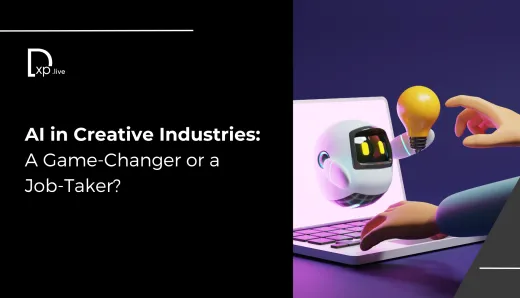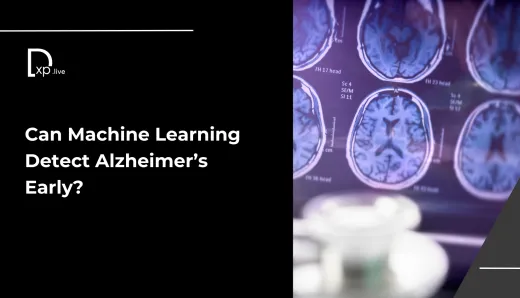AI Revolution in Healthcare Operations

As the healthcare industry grapples with growing administrative demands, escalating costs, and increasing expectations for personalized care, Artificial Intelligence (AI) emerges as a pivotal force. For healthcare organizations, the integration of AI is not just an upgrade—it's a paradigm shift. The fusion of AI into healthcare operations holds the potential to revolutionize service efficiency, improve customer experience, and pave the way for the digital transformation that the industry so desperately needs.
The Case for AI Solutions in Healthcare
Globally, there is tremendous demand for healthcare institutions to offer more with fewer resources. In the United States alone, administrative costs account for about 25% of the over $4 trillion spent annually on healthcare. AI solutions present a viable path to reducing these costs while enhancing service operations. The integration of AI technology in healthcare, particularly in administrative areas such as claims processing, scheduling, and patient management, promises to streamline workflows and allow human workers to focus on higher-value tasks.
But beyond automation, AI offers healthcare organizations the ability to deliver a personalized, data-driven customer experience that was previously unattainable. As organizations embrace digital transformation, AI serves as the engine driving innovation, operational efficiency, and customer satisfaction.
AI Solutions for Enhanced Customer Experience
Customer experience in healthcare extends far beyond the initial point of care. Patients expect their entire healthcare journey—from appointment scheduling to billing—to be seamless, personalized, and efficient. AI can transform each touchpoint along this journey by analyzing data, predicting customer needs, and optimizing service delivery.
Consider the adoption of virtual assistants and chatbots driven by AI. These tools enable patients to receive quick, accurate responses to their queries without having to wait for human assistance. While only a fraction of AI chatbot interactions currently resolve patient queries without human intervention, the potential for improvement is enormous. As these systems become more advanced, they will significantly reduce wait times, enhance user satisfaction, and free up human resources for more complex tasks. Moreover, conversational AI allows for a tailored experience by utilizing data to provide personalized recommendations based on a patient’s health history and preferences.
Incorporating AI into service operations goes beyond addressing immediate needs; it creates a more responsive and intuitive healthcare system that enhances the overall customer experience.
The Challenges of Scaling AI in Healthcare
Despite the excitement around AI, healthcare organizations often struggle to realize its full potential. Digital transformation efforts frequently fail to deliver their expected return on investment, and many AI projects face challenges in scaling from pilot phases to full production.
One of the primary obstacles is the lack of a clear mission-led roadmap. Many healthcare leaders approach AI with either overly optimistic expectations or a limited understanding of its transformative potential. Some expect AI to solve all their operational challenges immediately, while others may not see how AI can revolutionize their workflows. In reality, integrating AI solutions requires a long-term vision that aligns with business objectives and systematically addresses operational pain points, such as inefficiencies in claims processing or patient services.
The talent gap is another significant barrier to AI adoption. Healthcare organizations often lack the technical expertise necessary to design, implement, and scale AI solutions effectively. Upskilling the current workforce or recruiting new talent with the right capabilities is essential to successful AI deployment. Moreover, organizations must foster a culture that values innovation, encourages agile decision-making, and embraces digital tools.
Data Protection in AI-Driven Healthcare
Perhaps the most critical issue when integrating AI into healthcare is the management and protection of sensitive data. AI thrives on vast amounts of data, but healthcare organizations must navigate stringent data privacy regulations like the Health Insurance Portability and Accountability Act (HIPAA) in the U.S. Ensuring compliance with these regulations while leveraging AI is a delicate balance.
AI solutions require access to patient data, which may come from various sources such as electronic health records (EHRs), wearable devices, and patient monitoring systems. However, this data is often unstructured, siloed, and incomplete, making it difficult for AI algorithms to extract meaningful insights. Healthcare organizations must invest in data governance frameworks that ensure data quality, availability, and security. Only then can they realize AI's full potential while maintaining trust with their patients.
Additionally, AI must be designed to mitigate bias and ensure equity in care. The models used in AI solutions should be trained on diverse datasets to avoid perpetuating disparities in healthcare outcomes. Ethical considerations around AI deployment are paramount, especially when dealing with sensitive patient data and life-or-death decisions.
Digital Transformation Through AI
The healthcare sector has long been characterized by its reliance on legacy systems that, while reliable, have become inefficient in an era of rapid technological advancement. For healthcare organizations to thrive in the digital age, they must embrace digital transformation—where AI plays a pivotal role.
AI enables healthcare organizations to move away from reactive, episodic care models toward more proactive, preventive care. For instance, AI-powered predictive analytics can help identify patients at risk of developing chronic conditions, enabling timely intervention and reducing the overall burden on the healthcare system.
Moreover, AI offers the potential for remote patient monitoring through wearables and other digital devices. These AI-powered tools continuously collect patient data, analyze it in real time, and alert healthcare providers to any potential issues before they escalate. This capability enhances patient outcomes and reduces the need for costly hospital visits, improving both service efficiency and patient satisfaction.
The integration of AI solutions into healthcare is not just about cutting costs or improving operational efficiency—it’s about reimagining the entire healthcare ecosystem. By focusing on digital transformation, healthcare leaders can create an environment where technology enhances human capabilities and delivers exceptional customer experiences at every stage of the patient journey.
Prioritizing AI for Customer Experience
As healthcare organizations consider the path forward, it’s clear that AI will play a critical role in shaping the future of service operations and customer experience. However, successful AI adoption requires a strategic approach, beginning with a clear roadmap that aligns with organizational goals.
Healthcare leaders must prioritize investment in the right AI tools, address the talent gap through targeted upskilling programs, and enhance data governance to support AI solutions. These steps will ensure that AI solutions not only deliver operational efficiencies but also enhance customer experience in meaningful ways.
Why AI Integration is the Future of Healthcare
The future of healthcare is deeply intertwined with AI. Healthcare leaders who embrace AI solutions will not only reduce costs and improve operational efficiencies but also transform the way they deliver care. AI-driven digital transformation will redefine customer experience, providing patients with personalized, responsive, and efficient care that meets their rising expectations.
For healthcare organizations ready to leap, the integration of AI is a necessity. It’s time to reimagine the future of healthcare service operations, where AI takes center stage in delivering a superior customer experience and operational excellence.
Stay ahead of the curve with the latest insights on AI solutions and digital transformation. Follow us for updates on how AI is reshaping the industry and transforming customer experience.




